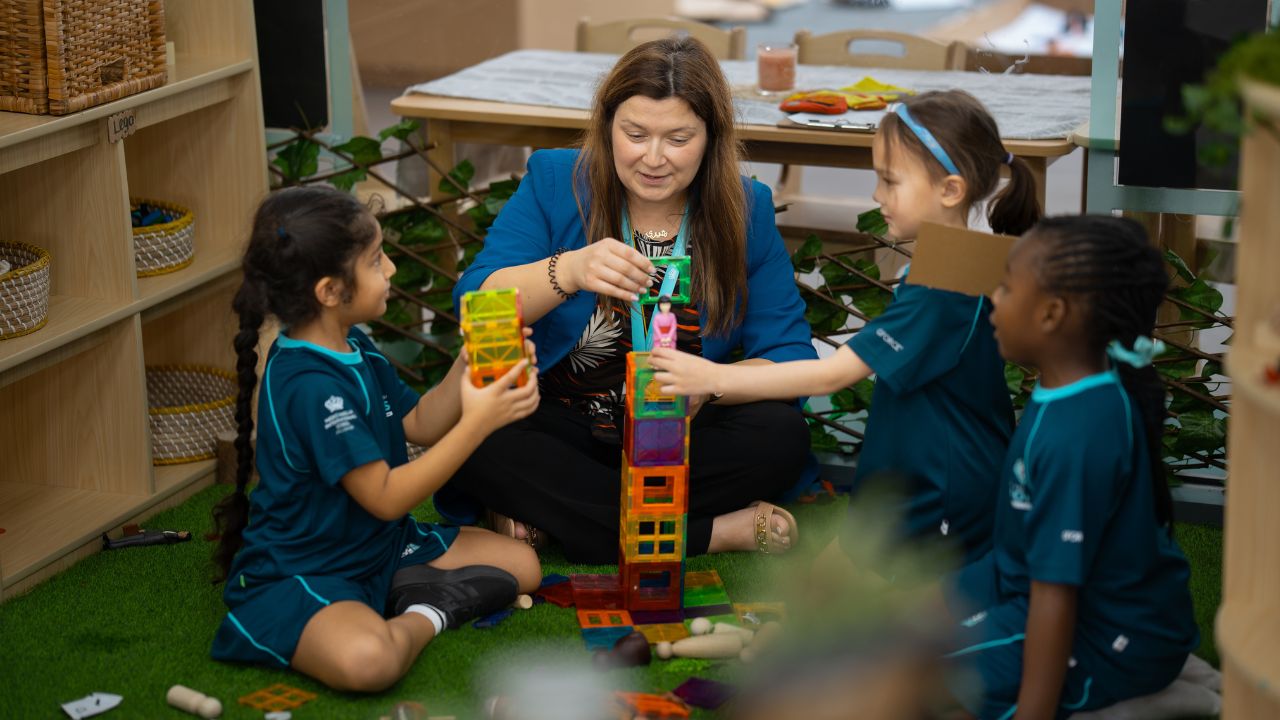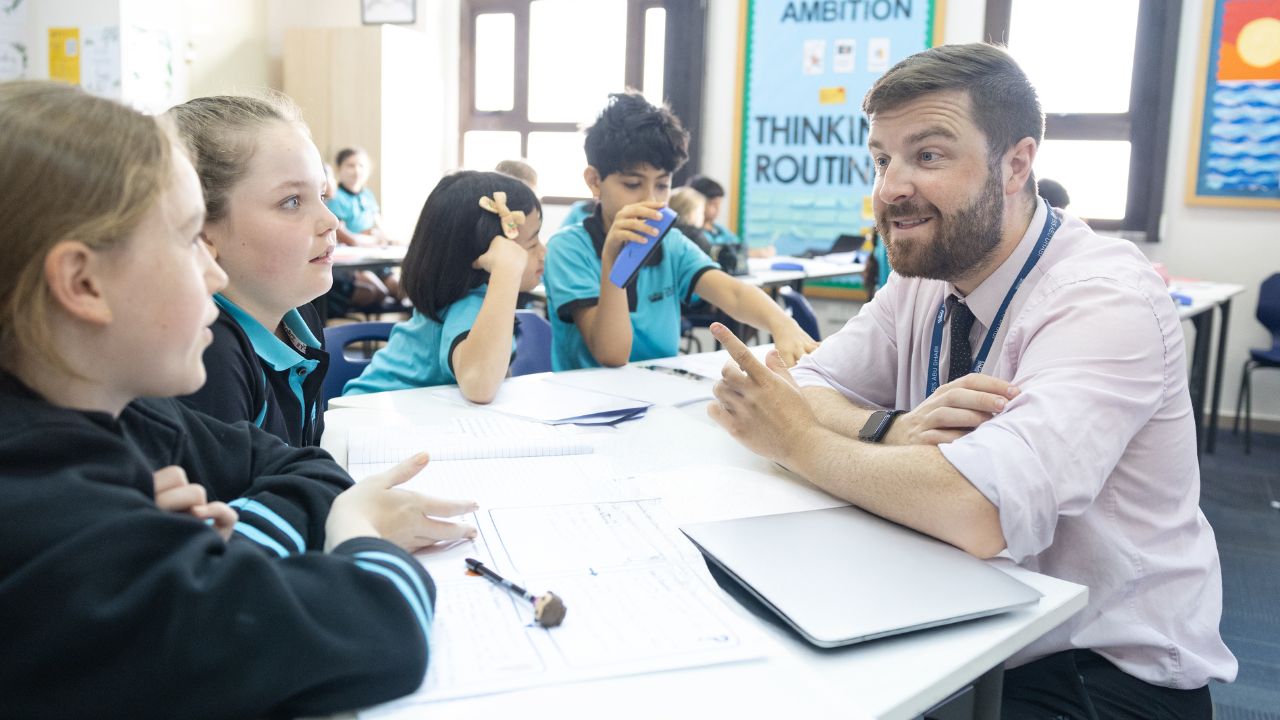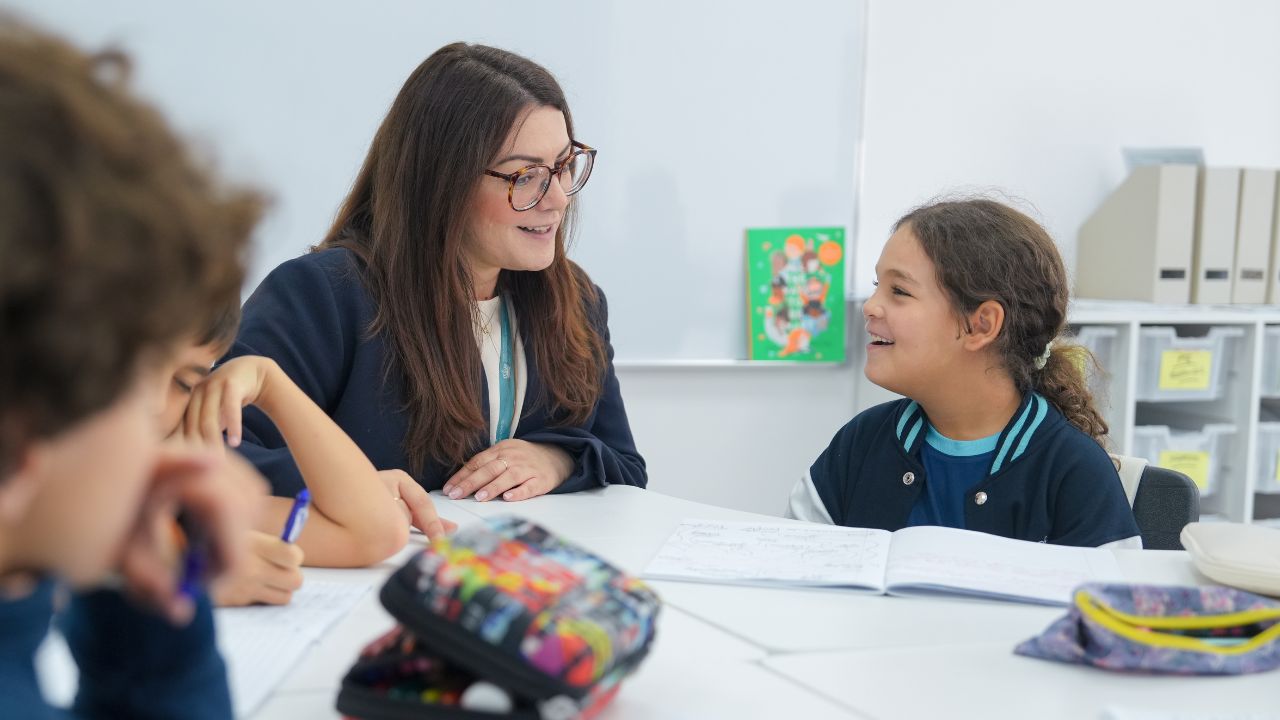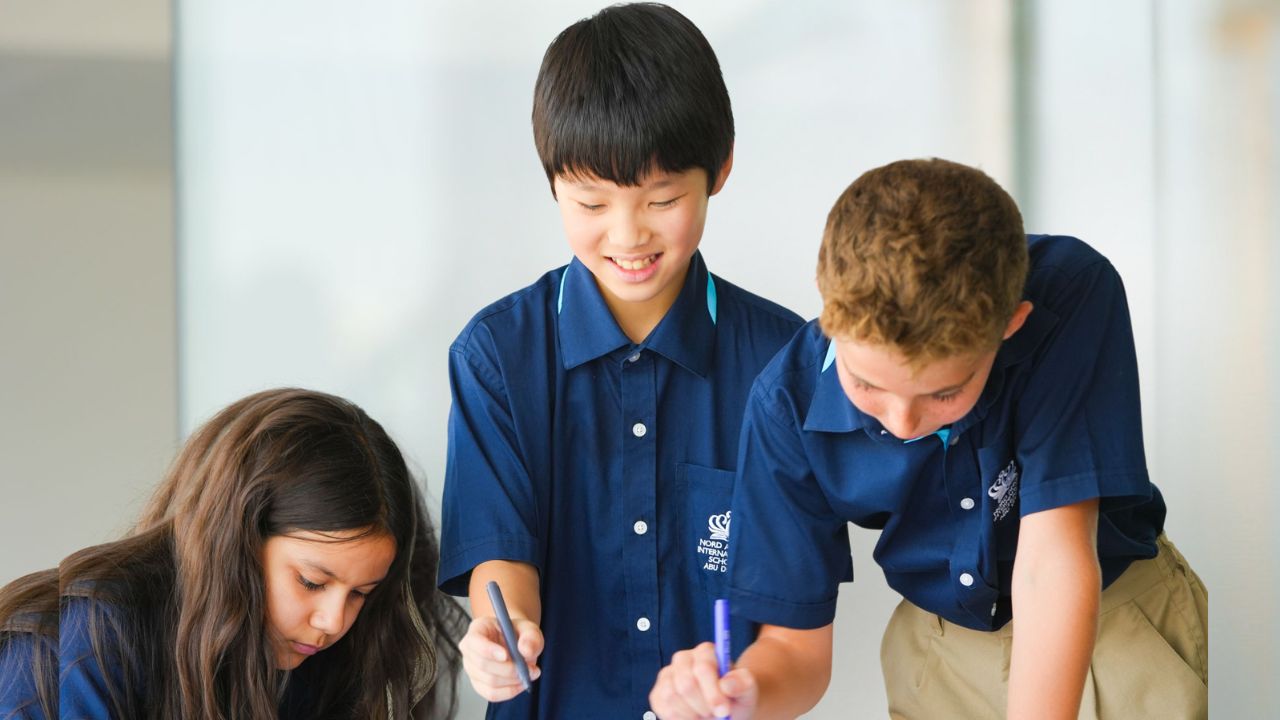
Discover how you can unlock your child’s potential with metacognitive learning
PARTNER CONTENT: In classrooms from Abu Dhabi to Equador, a quiet revolution is taking place. Over the last two years, Nord Anglia Education (NAE), a family of more than 80 international schools, has been leading a pioneering study across 27 schools in 17 countries, exploring how metacognition – learning about how we learn – can transform student progress, confidence, and wellbeing.
The study is a research based systematic approach across a global network, the impacts of which will be measured in independent research by Boston College this year.
But what is Metacognition and how can it help our children to achieve personal, social and academic success?
“Metacognition is the ability to be aware of our thought processes and to monitor, reflect on and change those processes.” Dr Rose Luckin, University College London.
The initiative goes far beyond test scores. It’s about giving children the tools to understand their own thinking, to evaluate what helps them learn best, and to carry those habits into every subject, every challenge, and ultimately, into life itself.
“The power of this project is that students are realising their own thoughts are valid – that Google, or any given AI platform, doesn’t have all the answers,” says Catharine Keen, Metacognition Lead – Secondary at Nord Anglia International School Abu Dhabi (NAS Abu Dhabi) involved in the research.
“For some of our quieter or less confident students, that shift has been extraordinary.”
From study to culture
Launched in 2023, Nord Anglia Education’s Metacognition Study was designed to align classroom practice with the organisation’s 6 Cs Framework: creativity, curiosity, collaboration, critical thinking commitment and compassion.
The project sits at the intersection of technology, psychology, and pedagogy, using “thinking routines” to help students become more reflective, independent learners.
Short, structured prompts help students unpack their ideas and reflect on their learning processes.
The routines are intentionally simple: What makes you say that? or I used to think… now I think… But the effect, teachers say, has been profound.
“Effectively, these routines make student thought visible, so an educator can see their cognitive processes and offer challenge or support,” adds Sheree Hay, Metacognition Lead – Primary, NAS Abu Dhabi.
“It’s a paradigm shift,” explains Sheree “Moving from teaching to children to teaching with them.
Students now understand their own strengths and are setting goals, reflecting, and identifying their next steps.”
Shifting the focus: Beyond grades
In an era when education often feels defined by data, the NAE study signals a return to something more human.
“Grades open doors,” acknowledges Amy Coote, Metacognition Lead – Secondary at British International School Abu Dhabi (BIS Abu Dhabi). “But the ability to think creatively, collaborate effectively, and adapt to new contexts are what keeps those doors open.”
Teachers note that while academic performance remains a priority, the project places equal emphasis on transferable skills – the kind employers and universities consistently value most.
The 6 Cs framework provides a shared language for students and teachers to discuss learning in terms of growth rather than grades. “It’s not an add-on, Amy adds.
“It’s just as important.” For students in international schools, where languages and cultural backgrounds vary widely, this framework also supports inclusion.
“Our more challenged or EAL students often found it difficult to express their ideas,” says Catharine. “Now, with thinking routines, they are confident in their own voice.
Learner portfolios: Thinking in progress
One of the most innovative aspects of the project is the Learner Portfolio – a proprietary online platform where students document their own progress across the 6 Cs.
Each competency is broken into age and stage-appropriate strands, allowing students to self-assess, set goals, and collect evidence of growth.
As Sheree explains, “The portfolio isn’t just a showcase, it’s a metacognitive tool. Students look for moments when they have demonstrated curiosity or compassion and then reflect on how they got there. It’s both student and teacher-assessed, so it creates a shared picture of development.”
Over time, Nord Anglia Education aims to place metacognitive data alongside academic results, giving equal weight to both.
“It’s a bold move,” says Catharine. “We’re saying that how students learn is just as important as what they learn.”
Planting seeds for the future
For many teachers, the impact of the project has been both professional and personal. “This is long-term work,” reflects Aaron Regan, Metacognition Lead – Primary at BIS Abu Dhabi.
“We might not see all the results in our own careers, but we are seeding something that lasts. The cognitive habits these children are developing – reflection, compassion, curiosity, resilience – those are lifelong skills.”
This long view is part of Nord Anglia Education’s DNA and aims to contribute to the wider global dialogue and research on metacognition.
“We are implementing practical strategies that we hope will have a real impact on students’ learning outcomes across the globe,” says Dr Elise Ecoff, Chief Education Officer of Nord Anglia Education.
The group invests heavily in partnerships with institutions such as Harvard Graduate School of Education, whose research underpins much of the metacognitive framework. The current phase of the project is supported by Harvard Project Zero, which will next explore how these strategies translate across age groups and subjects.
The 6 Cs: Learner ambitions
The 6 Cs are far more than a checklist – they are woven into every aspect of school life. Classrooms display them. Assemblies celebrate them.
Rewards systems are structured around them. The BIS Abu Dhabi Brilliance Cards for example serve to reward students for acts of creativity or compassion.
All award certificates and achievement accolades at NAS Abu Dhabi are all linked to the 6 Cs, culminating in initiatives like breakfast celebrations with the Headteacher. “It’s constant reinforcement,” says Sheree.
“They’re not just words on the wall, they are the DNA of the school, firmly established by our founding Principal, Liam Cullinan and our founding Head of Primary, Michael Connor.”
This cultural embedding extends to extracurricular programmes, too. “Our enrichment activities are explicitly linked to the Cs,” adds Sheree.
“Parents can see in our booklets how each club develops different aspects, from critical thinking in coding to creativity in maths. It’s about continuity: the school day doesn’t stop at 3pm and our enrichment offerings are not just busy after-school activities. They are intentionally aligned with the school’s values.”
Empowering teachers through collaboration While the project focuses on student outcomes, it has also transformed teacher culture.

Change in education can be daunting, but NAE’s approach blending autonomy, collaboration and shared purpose, has encouraged teachers to take ownership “We have made results visible,” says Aaron.
“When colleagues see that thinking routines improve reading comprehension or inference skills, they buy in. That’s when culture shifts.” Amy adds “Leadership support has been instrumental.
From the first day of term, our Principal, Alan Cocker, emphasised that this was a shared Teaching and Learning focus. That collective vision really brought staff on board.” Each school in the study now has Metacognition Champions.
Teachers who model and share best practice through online forums, templates, and peer “pop-in” observations.
“The pop-ins are positive, not evaluative,” Aaron explains. “We wanted to build a culture of risk-taking for teachers as well as students.”
This collegial spirit is reinforced by regular cross-school meetings, where educators exchange ideas and celebrate milestones. “It’s incredibly supportive,” says Amy. “It feels global, but personal.”
Parents as partners
Parents, too, are part of the journey. Each term, schools communicate the current Learner Ambition focus through newsletters and workshops. Families receive examples of thinking routines to try at home, such as asking children, “What makes you say that?” during everyday conversations.
“Parents appreciate the consistency,” says Aaron. “They use the same language at home. It builds continuity between school and family life.”
NAE’s marketing and communication teams have also played a vital role, ensuring the vision is clear and accessible.
“Translating academic language into something parents understand is key,” notes Liam Cullinan, Principal NAS Abu Dhabi. “The 6 Cs are not abstract ideas. They are our values in action, and they are visibly seen around the school, as well as lived in the classrooms and playgrounds.
Measuring what matters
As with any global education initiative, data plays a crucial role. The next phase of the study will focus on mapping metacognitive development against academic outcomes, a step that could change how schools measure success.
“This benchmarking will demonstrate the academic impact of these skills. Key data points for education ministries and exam boards,” says Sheree.
“That’s when the scope for systemic change opens up.” Already, the early data is promising. Teachers report improved engagement, richer classroom dialogue, and stronger evidence of independent thinking.
But perhaps the most powerful outcomes are the ones harder to quantify. Confidence, empathy, purpose and ownership.
A blueprint for future learning
The metacognition study is a long-term shift in how Nord Anglia Education views learning itself.
“This is ongoing, growing work,” says Aaron. “The study has been extended, and Harvard is now exploring how routines transfer between subjects and age groups.”
Ultimately, the goal is not just to teach children to think, but to teach them to think about their thinking. To become reflective, adaptive learners ready for an unpredictable world.
“The jobs our students are aiming for haven’t even been invented yet,” says Amy. “Our responsibility is to equip them with cognitive pathways and options that transcend subjects: a spirit of inquiry, the ability to communicate eloquently, courage to try. Those can’t be replicated by AI.”
The human factor
Perhaps the most striking takeaway from the project is its reaffirmation of the human side of education. “We were brought up in a society where creative play and independent thought came naturally,” Catharine reflects.
“Now we must create those spaces intentionally. The 6 Cs help us do that. They remind us that education is as much about being human as it is about being successful.”
In the end, the study’s insights into how educators teach are just as important as how students learn.
They reveal a profession willing to evolve, to experiment, and to model the very curiosity it seeks to inspire.
As NAE continues its journey, one truth stands out: in a world increasingly driven by algorithms and automation, the ability to think deeply, reflect honestly, and connect compassionately remains education’s most powerful gift.
For further information, visit nordangliaeducation.com
Follow Yalla for all the latest news





